Related Research Articles

Augusto Roa Bastos was a Paraguayan novelist and short story writer. As a teenager he fought in the Chaco War between Paraguay and Bolivia, and he later worked as a journalist, screenwriter and professor. He is best known for his complex novel Yo el Supremo and for winning the Premio Miguel de Cervantes in 1989, Spanish literature's most prestigious prize. Yo el Supremo explores the dictations and inner thoughts of José Gaspar Rodríguez de Francia, the eccentric dictator of Paraguay who ruled with an iron fist, from 1814 until his death in 1840.

Dulce María Loynaz Muñoz was a Cuban poet, and is considered one of the principal figures of Cuban literature. She was awarded the Miguel de Cervantes Prize in 1992. She earned her Doctorate in Civil Law at University of Havana in 1927.

José Emilio Pacheco Berny was a Mexican poet, essayist, novelist and short story writer. He is regarded as one of the major Mexican poets of the second half of the 20th century. The Berlin International Literature Festival has praised him as "one of the most significant contemporary Latin American poets". In 2009 he was awarded the Cervantes Prize for his literary oeuvre.
Roberto Fernández Retamar was a Cuban poet, essayist, literary critic and President of the Casa de las Américas. In his role as President of the organization, Fernández also served on the Council of State of Cuba. An early close confidant of Che Guevara and Fidel Castro, he was a central figure in Cuba from the 1959 Revolution until his death in 2019. Fernández also wrote over a dozen major collections of verse and founded the Casa de las Americas cultural magazine.

Óscar Acosta Zeledón was a Honduran writer, poet, critic, politician and diplomat.
Renée Ferrer de Arréllaga is a contemporary Paraguayan poet and novelist. She is Secretary General of the Board of Governors of the twenty-member Academia Paraguaya de la Lengua Española. Her novel Los nudos del silencio has been translated into French, Italian, and English. On 16 December 2011, Ferrer was awarded Paraguay's National Prize for Literature by President Fernando Lugo. She is married with four children.

The cinema of Paraguay has historically been small. However, this has begun to change in recent years with films like El Toque del Oboe (1998); María Escobar (2002); O Amigo Dunor (2005), which competed for Best Movie in the Rotterdam International Film Festival; Hamaca Paraguaya (2006), which was screened at the Cannes Film Festival, gaining critical acclaim both in Paraguay and abroad; 7 cajas (2012); Latas Vacías (2014); and Luna de Cigarras (2014).
Mauricio Cardozo Ocampo was the main reference of the so-called "golden generation" of the Paraguayan popular music and a strict studious of the Paraguayan folk music.
Zoé Jiménez Corretjer is an author from Puerto Rico. She is a professor in the Department of Humanities, University of Puerto Rico at Humacao.
Lily Tuck is an American novelist and short story writer whose novel The News from Paraguay won the 2004 National Book Award for Fiction. Her novel Siam was nominated for the 2000 PEN/Faulkner Award for Fiction. She is a Guggenheim Fellow.

Aleixo Garcia, also known in Spanish as Alejo García, was a Portuguese explorer and conquistador in service to Spain. He was a castaway who lived in Brazil and explored Paraguay and Bolivia. On a raiding expedition with a Guaraní army, Garcia and a few colleagues were the first Europeans known to have come into contact with the Inca Empire.
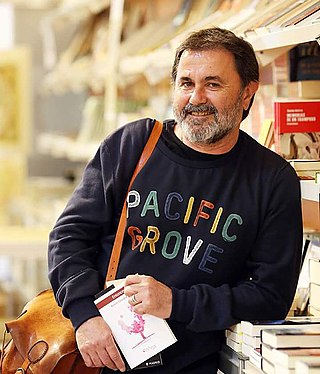
Aurelio González Ovies is a Spanish writer and poet from Asturias. He has a Ph.D in Classical Philology and he is a Professor of Latin Philology at the University of Oviedo. In words of the writer Victor Alperi:
The PEN/Edward and Lily Tuck Award for Paraguayan Literature is awarded by the PEN America to honor an author of a major work of Paraguayan literature and the English translator. The award was established by author Lily Tuck to assist with the translation of Paraguayan literature from Spanish or Guarani into English. Tuck won a National Book Award in 2004 for The News from Paraguay, which was set in 19th century Paraguay. Michael Orthofer of complete review called it "my new favorite American literary award," for its coverage of an overlooked area of world literature.
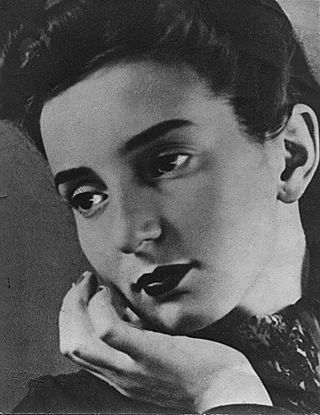
Idea Vilariño Romani was a Uruguayan poet, essayist and literary critic.
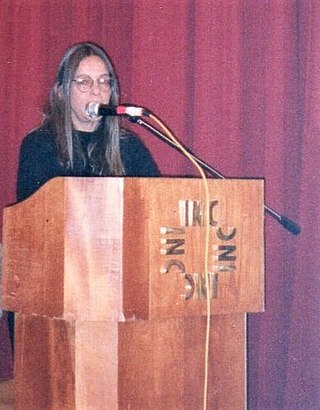
Isabel María Sabogal Dunin-Borkowski is a Polish-Peruvian bilingual novelist, poet, translator of Polish literature into Spanish and astrologer.
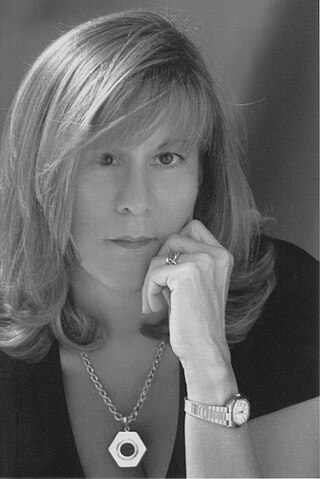
Lourdes Espinola is a Paraguayan poet, diplomat, cultural promoter, and literary critic. Daughter of the laureate Paraguayan writer and philosopher Elsa Wiezell, Espinola's academic background includes the fields of health sciences, international relations, as well as philology and literature, at universities of the United States and Europe.
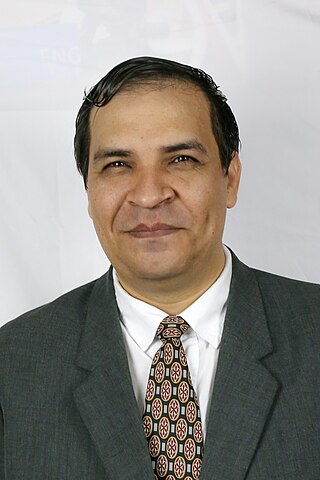
Javier Viveros is a Paraguayan writer, active member of Academia Paraguaya de la Lengua Española, corresponding member of Real Academia Española and former Vice-president of the Paraguayan Writers Society.
Rubén Bareiro Saguier was a Paraguayan writer, poet and diplomat.

Juliana, better known as the India Juliana, is the Christian name of a Guaraní woman who lived in the newly founded Asunción, in early-colonial Paraguay, known for killing a Spanish colonist between 1539 and 1542. She was one of the many indigenous women who were handed over to or stolen by the Spanish, forced to work for them and bear children. Since the area was not rich in minerals as they had anticipated, colonists generated wealth through the forced labor of indigenous people—especially the sexual exploitation of women of childbearing age.
Maybell Lebron is an Argentine-born writer of short stories, poems, and novels, based in Paraguay. She is the founder of Associated Paraguayan Writers, and has won Paraguay's National Prize for Literature.
References
- ↑ "Portal Guarani - DELFINA ACOSTA". Portal Guarani. Retrieved Apr 30, 2019.
- 1 2 3 4 Daniel Balderston; Mike Gonzalez; Ana M. Lopez (11 September 2002). Encyclopedia of Contemporary Latin American and Caribbean Cultures. Routledge. pp. 35–. ISBN 978-1-134-78851-4.
- 1 2 3 4 Richard Young; Odile Cisneros (18 December 2010). Historical Dictionary of Latin American Literature and Theater . Scarecrow Press. ISBN 978-0-8108-7498-5.
- 1 2 Laurie Hertzel (August 28, 2012). "PEN literary awards announced". Star Tribune . Retrieved August 28, 2012.
- 1 2 "2012 PEN/Edward and Lily Tuck Award for Paraguayan Literature". pen.org. Retrieved August 1, 2014.
- ↑ "Romancero de mi pueblo / Delfina Acosta | Biblioteca Virtual Miguel de Cervantes". www.cervantesvirtual.com. Retrieved Apr 30, 2019.
- ↑ "Delfina Acosta, la poeta, narradora y periodista paraguaya, escribe sobre la poesía, que es tan difícil de definir en una frase…aunque el señor silencio logra interpretarla de alguna manera. | Caminos Culturales". www.caminosculturales.com.ar. Retrieved Apr 30, 2019.[ permanent dead link ]